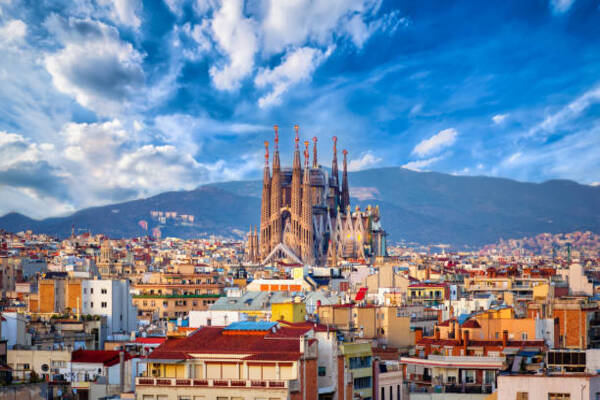<> Viral of Today <>
Home » Spain Travel News » New Tourism Rules And Expensive Fees In Spain Are Reshaping How Tourists Experience The Country Friday, June 6, 2025Spain is tightening tourism rules in Barcelona, Mallorca, and Ibiza, introducing higher fees and stricter regulations, reshaping the travel experience for visitors.As the summer season approaches, an increasing number of Irish travelers are planning their getaways to Spain’s sun-soaked beaches. However, with new regulations set to affect tourists, it is important for visitors to stay informed and adjust their travel plans accordingly.Spain has been facing rising concerns over the sustainability of its tourism industry, particularly in its popular cities and islands. Large-scale protests across the mainland and its islands have drawn attention to the strain that tourism is putting on local communities. These demonstrations focus on the escalating housing crisis and the increase in anti-social behavior, which many attribute to the influx of tourists. As a result, the Spanish government has begun to implement stricter regulations aimed at reducing the negative impacts of tourism on both the environment and local residents.One of the most significant changes has been the government’s crackdown on Airbnb listings. In a move to regulate the booming short-term rental market, Spain has ordered the removal of more than 65,000 holiday rental listings on the platform. The Spanish consumer rights ministry cited violations such as missing license numbers, unclear ownership details, and discrepancies between listed properties and official records. This initiative is part of a broader effort to tackle the negative consequences of uncontrolled tourism, including the depletion of available housing for locals.Barcelona, a city that has long been a favorite for city breaks, hen and stag parties, and cultural exploration, will also see new regulations come into effect this June. The city’s government has introduced a mayoral decree that will impose a ban on organised pub crawls in specific areas, particularly in the historic Eixample district. From 7 pm to 7 am, these events will be prohibited, and organisers or promoters who advertise such activities will face fines of up to €900. This move aims to curb noise pollution and anti-social behavior, which has been a growing concern in popular tourist areas.In addition to the pub crawl ban, Barcelona has announced plans to phase out short-term rental tourist apartments by 2028. The city’s housing crisis, driven by the popularity of vacation rentals, has led to rising rental prices and a lack of affordable housing for local residents. By restricting short-term rentals, the local government hopes to provide more stable housing options for the city’s population and reduce the negative social impacts caused by tourism.The Balearic Islands, including Mallorca, Menorca, Ibiza, and Formentera, are facing similar challenges related to mass tourism. The region has seen its own share of protests, with locals urging tourists to consider the strain they are placing on the islands’ resources. These protests highlight concerns over overcrowding, rising living costs, and the impact of tourism on the environment.In response to these issues, the regional government of the Balearic Islands has raised the ‘ecotasa,’ a tourist tax that visitors pay when staying in hotels and other accommodations. The tax has been increased to €6 per person per night, reflecting the growing concerns about the environmental impact of tourism. Additionally, the fees for cruise passengers have almost tripled, rising from €2 to €5. This move is part of the islands’ effort to mitigate the negative effects of mass tourism while generating revenue to support sustainable development initiatives.Further measures have also been introduced to regulate tourism on the islands. A new tax has been imposed on holiday vehicles, requiring visitors who bring cars registered outside the islands to pay a fee ranging from €30 to €85. This initiative aims to reduce traffic congestion and promote more sustainable transport options.In Mallorca, restrictions have already been placed on the number of cruise ships allowed to dock at the island’s port, in an effort to control the influx of visitors arriving by sea. Similarly, in Tenerife, the local government has limited the number of tourists allowed to enter the island’s national parks, ensuring that these natural spaces remain protected from overuse. Additionally, Seville is set to introduce a new charge for tourists wishing to enter the iconic Plaza de España square, a move aimed at managing the high volume of visitors to the site and funding its maintenance.These new regulations are part of Spain’s broader effort to balance the benefits of tourism with the need to preserve its resources and improve the quality of life for residents. While the measures may be seen as a challenge for some tourists, they reflect the growing awareness that sustainable tourism practices are necessary to ensure that Spain remains an attractive destination without compromising the well-being of its local communities and environment. As these changes take effect, travelers are advised to stay informed and adjust their plans accordingly, in order to enjoy Spain’s beauty while respecting the needs of its residents and ecosystems.
This information will surprise you!
See also
- Read until the end to discover everything.
- Important information you need to know.
- Interesting facts and helpful tips.
Conclusion
Did you enjoy the news? Keep following us daily!

